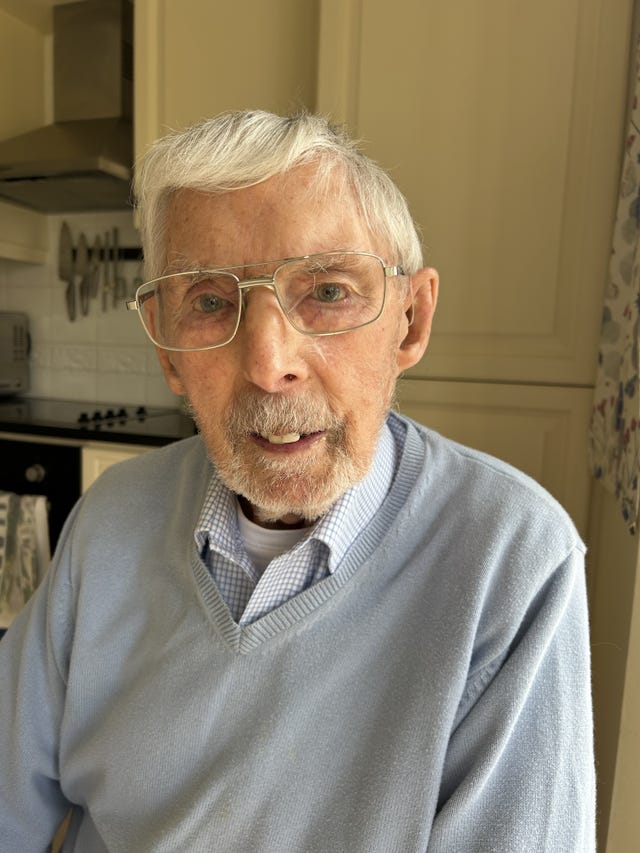100-year-old veteran recalls ‘getting squiffy’ amid VE day celebrations
Tom Berry was a teenager when he joined the Royal Navy as a radio operator on the Tribal-class destroyer HMS Tartar.

A 100-year-old Second World War veteran has recalled “getting a bit squiffy” as he turned 21 amid VE Day celebrations on a Navy ship in 1945.
Tom Berry, born and raised in Liverpool, was a teenager when he joined the Royal Navy as a radio operator on the Tribal-class destroyer HMS Tartar.
She became known as the Lucky Tartar for her many narrow escapes from danger during the war.

Speaking ahead of the 80th anniversary of VE Day on Thursday, Mr Berry, who now lives in Macclesfield, Cheshire, described celebrating his 21st birthday a day early aboard the vessel, saying the crew “got an extra tot of rum”.
He said: “The captain came on to the deck and addressed the crew to let us know that the war was over in Europe.
“The Admiralty ordered us to ‘splice the mainbrace’, which is basically an order to have a drink.
“Because it was my birthday, I got more than most and got a bit squiffy.”
May 8 marks the date in 1945 when Germany surrendered to the Allies, ending almost six years of conflict in Europe.
The Royal British Legion will bring together Second World War veterans at an anniversary tea party and remembrance service at the National Memorial Arboretum in Staffordshire.
Mr Berry, who will celebrate his 101st birthday on Friday May 9, said he “hopes everyone joins in the spirit of the celebrations the Royal British Legion is laying on for the country”.
He said he “doesn’t consider himself a hero” but rather a “lucky man on a lucky ship”.
HMS Tartar was one of only four destroyers to survive the war out of 16 at the start of the conflict.
Mr Berry said one of the Lucky Tartar’s closest scrapes happened on D-Day, when the largest amphibious invasion in history began the liberation of western Europe from Nazi occupation.
He said: “Our orders were to shell the German emplacements to allow the troops to land in Normandy – I felt very sorry for those poor soldiers heading into the unknown.
“After the troops moved further inland we patrolled the Channel and sank two German destroyers, but they returned fire and shot our main mast away.
“The galley and the bridge caught fire and we lost four men in that incident before limping back to Plymouth.”
After victory in Europe, the war continued for the Lucky Tartar in the Asia-Pacific, and Mr Berry recalled being “a bit miffed” because of “all this celebrating in the UK” while he and the crew were “still being shot at”.
“In the Far East we did have one particular encounter with a Japanese cruiser which was very heavily armed – we could only fire about five miles (away) but their range was seven or eight.
“It was a tense time, but we kept going,” he said.
The end of the war came for Mr Berry on September 2 1945, when the Lucky Tartar was present at the signing of the Japanese surrender in Tokyo Bay.





